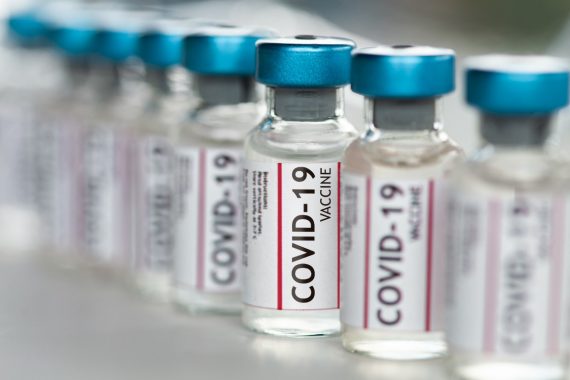MPs have expressed concern about the Government’s ‘stop-start’ approach to Covid vaccine supplies to GP sites.
The Public Accounts Committee report said there problems around ‘double vaccines appearing at GP practices, or people expecting one type of vaccine and receiving another’.
The vaccines minister had previously denied reports that vaccine supplies were being diverted to regulate uptake.
But, in the report published today, NHS England admitted that it had ‘redistributed vaccines to those PCNs who had a larger group of people over-80 to vaccinate and who still needed doses’.
The news comes as GPs keen to move on to vaccinating the under-65s with underlying conditions told Pulse they are worried that vaccine supplies may put limits on how fast they can go.
The report emphasised ‘that 97.3% of the vaccine deliveries, and 98.15% of all deliveries related to the vaccine programme, had been on time and in full’,
However, the PAC report added: ‘Despite this significant achievement, there is still much to be done to meet the Government’s target to offer a vaccine to 17.7 million in priority groups by the end of April 2021, with supply a key factor.
‘We are concerned by Departments’ lack of planning for the next phase of the programme and in learning the lessons from what has already been done that will be so vital to the programme’s success.’
The committee called for the Government to set out plans for adapting the vaccination programme, including putting in place ‘plans to respond to potential future developments such as changes to the prioritisation list, an annual vaccination programme, or the discovery of new variants of the virus’.
NHS England responded that it had ‘investigated any mistakes to work out what had happened and how to ensure they were not repeated’. .
Commenting on the PAC report, RCGP chair Professor Martin Marshall said that GPs’ ability to deliver the programe depended on ‘the supply of the vaccine’, including ‘regular, reliable deliveries of vaccines to GP-led vaccine sites around the country.’
He added: ‘This is something that has been frustrating for practices, especially when they have had to deal with last minute changes to the supply chain, and moving forward we would like to see vaccination sites being told in good time when they should expect to receive vaccines and for changes to be kept to a minimum.’
BMA GP Committee chair Dr Richard Vautrey also said adequate vaccine supply was ‘fundamental’ to the programme, adding: ‘It is absolutely crucial therefore that the Government are held to account over vaccine supplies and there is transparency over any issues with supply so this can be managed in the most effective way and ensure we still have the maximum reach possible.’
The Government has repeated that it is on track for everyone in these cohorts to be offered a vaccine by 15 February – Monday next week – however it has yet to issue advice to GPs on how to move into the next priority cohorts.
GPs told Pulse that many practices have now invited and chased everyone over the age of 70 and are now turning their attention to categories 5 and 6 – the over-65s and those aged 16-65 with underlying health conditions which put them at higher risk of serious disease and mortality.
Dr Richard Cook, a GP in Brighton said they had started to call in 65 to 69 year olds but they had been advised ‘there may be a lull in vaccine delivery’.
‘No idea when we will get on to the under-65s yet. Information coming through is limited, and usually with very short notice.’
Dr Simon Hodes, a GP in Watford said: ‘Once we have moved through groups 1 to 5 we can get on to group 6. As always the only limiting [factor] is a planned and regular delivery of vaccines.’
Dr Eric Wilkinson, a GP in Hampshire, said they would move down the ranks of eligible patients as soon as they can but practices should be able to obtain vaccine supplies directly as they do with flu.
‘My practice along with many others had a stated desire to be able to offer [the Oxford/Astra Zeneca vaccine] to all cohorts and administer this in the same way as we would for an influenza campaign. However, NHS England does not seem willing to move on this.’
He added that confusion over conflicting local and national booking processes as well as up to date information on who had had the vaccine was hampering progress.
‘One of our local hub had to reduce capacity this week because it couldn’t find enough patients to vaccinate – despite records indicating hundreds in cohorts 1-2 were still in need.’
Dr John Allingham, medical director at Kent LMC said the big push at the moment was to target missing patients in groups 1 to 4, including hard-to-reach groups.
‘A lot is driven by supply,’ he added. ‘We have been asked to target the practice learning disability registered patients now.’
On the coronavirus briefing on 10 February, the Prime Minister reiterated that everyone in cohorts 1 to 9 would be vaccinated by the end of April.
GPs have previously complained that they are not receiving as much Covid vaccine as they are capable of administering.

















